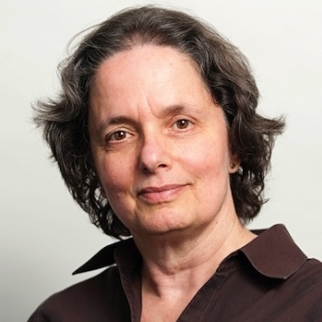As I squeezed into my seat at Sunday’s Citywide Holocaust Remembrance Day at Pan Pacific Park, I listened as the woman next to me addressed a man in
the row in front of us.
“Why are you here?” she asked, and from his surprised look it was clear they’d never met.
“To honor others,” he mumbled. She smiled, muttering, “You won’t get anything from what they say here.”
“What about you?” I chimed in. The woman pulled up her sleeve and showed us her tattooed number. “They don’t understand what it was like,” she said, pointing to the speakers on the stage. “You can’t unless you were there.”
I told her I’d be writing about the event, and though she told me her name, she insisted that if I told her story, she should remain anonymous. She shared that she was from Sosnowiec, Poland. Her father
had been a prominent tailor, who taught her his trade, bringing her and her brother to work with him once it was clear trouble lay ahead.
One day in 1942, she was among 162 girls sent to a labor camp in Czechoslovakia. She was 14. Her family was left behind and later perished in the concentration camps.
She told me the labor camp had showers and gave them three meals a day — bread, potatoes, cabbage. She said when she got to Auschwitz she’d have done anything to eat that cabbage again. She and her friends swore that if they ever got free, they’d eat cabbage every day. “We didn’t keep our promise,” she said and laughed.
As people around us settled in, she told me five girls from her hometown were able to stay together through the war. She knew German and was allowed to write home for herself and the others for a while — the German captors read what she wrote, but one day they told her, “No more.”
“So we knew they were all gone.”
She’d been at Ravensbrück and on the death march. She talked about meeting her future husband through a friend after the war. He was a tailor, too, and they came to America together and made a life, had children … a grandchild. “The most wonderful 57 years,” she said, sharing that her husband died following an accident several years ago.
Then the Yom HaShoah speakers began, addressing to great applause the nearly 3,000 in attendance. The Yom HaShoah event is always a significant one for Los Angeles, bringing together people from throughout the community.
Consul General of Israel Jacob Dayan gave a rousing speech listing Israel’s accomplishments and spiting Holocaust deniers; Jona Goldrich, a survivor and supporter of the event, gave warm introductions.
L.A. Mayor Antonio Villaraigosa acknowledged the survivors in the crowd and spoke of how even small good deeds can make a difference. E. Randol Schoenberg, president of the Los Angeles Museum of the Holocaust, which serves to educate us all, made a plea for help raising $2.5 million to complete the museum’s new home. And featured guest speaker, Dan Gillerman, Israel’s ambassador to the United
Nations from 2003 to 2008, talked of walking the halls of the U.N. “representing a country far better than most of the other countries at the United Nations, a country that makes flowers bloom in the desert.”
He went on to warn of Iran’s threat and to explain why Benjamin Netanyahu would not join President Barack Obama’s nuclear disarmament summit this week.
My new friend walked out.
I thought of cabbages.
Where was the reality of the Holocaust in this day’s lineup of talented speakers? Was there no room to remember the moment when a child was separated from a mother? When jewelry was torn from a neck, when hair was shaved from a head?
When would we talk of the small moments of bravery, of using your limited German to write letters home for a friend — letters written with hope when, for a brief moment, they were permitted?
Of course, we needed to talk of the future, to show the lessons from our past strengthen us as we move forward. But shouldn’t we also take time to remember the details of what happened? Can’t some talk of tomorrow’s politics wait for another day?
On Monday night, I went to Temple Israel of Hollywood, where French-born filmmaker Pierre Sauvage screened his riveting new short documentary, “Not Idly By — Peter Bergson, America and the Holocaust.” It tells of one man who spent his every waking hour trying to convince American Jews to pressure their government to save Jews in Europe in the lead-up to America’s joining World War II. He reached Eleanor Roosevelt, but not her husband. He was met by deaf ears and, worse, dismissed by American Jewish leaders who didn’t want to draw attention to a “Jewish problem.” Reluctant to make waves.
Sauvage was hidden as a child by Huguenots during the war — his film “Weapons of the Spirit” tells their story. He spoke of the need to take responsibility for our lapses. He spoke of the strength needed to “let in the full picture, and not just part of it.” And, he said, “If we do not own our own past, we will not own our future.”
I thought again of the woman and her tattooed number. “If you use my name, I will sue you,” she told me with a twinkle in her eye. So, I haven’t. But I do want to say, “Thank you.”
Rob Eshman will return next week.





















 More news and opinions than at a Shabbat dinner, right in your inbox.
More news and opinions than at a Shabbat dinner, right in your inbox.